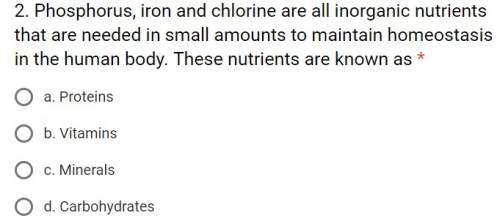
Biology, 26.03.2021 23:40 poreally1446
A vaccine is a substance that contains all or part of a noninfectious version of a disease-causing organism. When the vaccine is administered to a person, the person's immune system attacks the noninfectious version of the organism and learns to recognize its surface proteins. The next time the immune system comes in contact with the same surface proteins, it has a defense already prepared in order to respond quickly to the invading organism. In this way, a vaccine gives people immunity to the disease-causing organism. Vaccines can be life-saving, but there have been a few cases of people catching a disease from the administered vaccine. How might genetically engineered organisms solve this problem?

Answers: 2


Other questions on the subject: Biology

Biology, 21.06.2019 20:00, scadengo123
In addition to seeds, which of the following characteristics are unique to the seed-producing plants? a) sporopollenin b) lignin present in cell walls c) pollen d) use of air currents as a dispersal agent e) megaphylls
Answers: 1

Biology, 22.06.2019 02:50, cocodemain
Cells destroy body cells infected by a virus or bacteria.
Answers: 1

Biology, 22.06.2019 04:10, goldenhawk239
Anne, an intern in a microbiology lab, was observing the characteristics of various specimens of protists. match each specimen to the category of protist to which it belongs.
Answers: 1
You know the right answer?
A vaccine is a substance that contains all or part of a noninfectious version of a disease-causing o...
Questions in other subjects:


History, 08.12.2020 04:50

Social Studies, 08.12.2020 04:50


Mathematics, 08.12.2020 04:50

Chemistry, 08.12.2020 04:50


English, 08.12.2020 04:50

Mathematics, 08.12.2020 04:50




